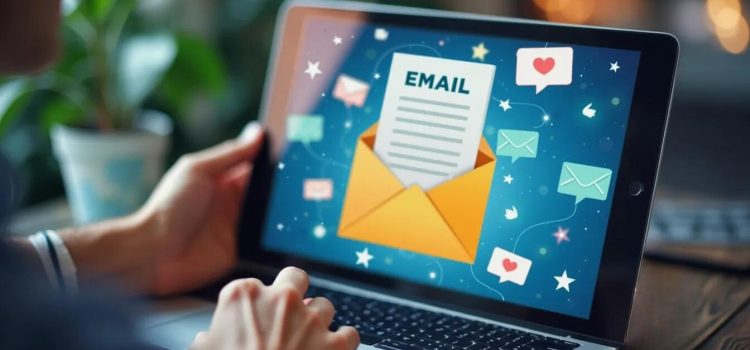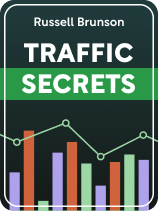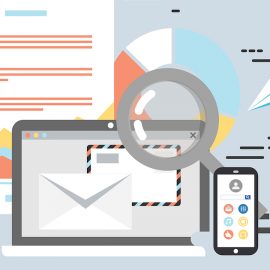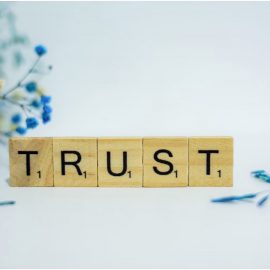

This article is an excerpt from the Shortform book guide to "Traffic Secrets" by Russell Brunson. Shortform has the world's best summaries and analyses of books you should be reading.
Like this article? Sign up for a free trial here.
Are you struggling to grow your business? Are you leveraging email marketing as effectively as you can?
Russell Brunson’s email marketing strategies can revolutionize your approach to customer engagement. In his book Traffic Secrets, Brunson explains how building an email list can generate substantial revenue with minimal effort. He offers practical tips for attracting subscribers and nurturing relationships.
Discover how to transform your business with Russell Brunson’s email marketing insights and advice.
Russell Brunson on Email Marketing
According to Russell Brunson, email marketing is a must for your business. He writes that the key to financial success is owning a list of contact information of potential customers. A list of leads can generate easy revenue—imagine, he explains, emailing 10,000 people to offer a $50 product. If just 1% of them respond (100 people), you might quickly earn $5,000. Brunson emphasizes that this is a far more efficient way to make money than working for an hourly wage—if you earned $50 an hour, you’d have to work 100 hours to earn what your list might have made after you spent just half an hour crafting an email.
(Shortform note: Brunson’s idea of using a list to generate revenue builds on traditional direct marketing—selling directly to individual consumers instead of through advertising. The technique rose to popularity at the end of the 19th century—Sears, Roebuck & Co. is widely credited as a pioneer with its regular catalog mailings to customers. The modern method of using emails instead of home addresses boosts reach and speed to your leads, providing access to a global audience instantly as opposed to the limitations of geographical boundaries with physical mail. Instead of waiting for your customers to check their mailbox, you’re dropping your offer right into their inbox—direct marketing updated for the digital age.)
Brunson advises you to entice people to give you their email address by offering them something free. He describes three types of free offers he’s found effective in convincing people to give them their contact information:
- Lead magnet: Something they can download in exchange for their email address. This will often be something informational, like an e-book.
- Free book: A physical copy of a book, free except for shipping costs.
- Webinar: An online class, if you offer one.
Offering one of these freebies will not only earn you contact information, it can also lead to additional sales—for example, the person who receives the free book or attends the free webinar might then purchase something else from you. But even if it doesn’t lead to additional sales immediately, your giveaways help nurture trust between you and your customer and help build your relationship with them.
(Shortform note: In Permission Marketing, Seth Godin writes that offering something free allows you to get people’s consent to your marketing, which makes potential customers more open to your message. He contrasts this with a more traditional technique of interruption marketing, which uses ads to interrupt a customer’s focus of attention—for example, by placing ads on a TV show or pop-ups on a website. He writes that freebies, such as those Brunson recommends, incentivize customers to engage with you further and, as Brunson notes, start to build trust. Godin argues that trust is the most important factor in gaining new sales, and adds that building trust is a process—one that freebies can kickstart.)
Exercise: Offer Something Free to Build Your Email List
Brunson points out the importance of creating a list of potential customers and reaching out to them with engaging content to turn them into actual customers. At the heart of these distribution strategies is offering something free in exchange for contact information. To better understand Brunson’s advice, consider these questions:
- Identify your target audience: What characteristics define your ideal customers? What are their needs or problems that your product or service can solve? What common questions do they have or common issues they face that you could help with?
- Now consider how you might obtain their email addresses or contact details. Could you write an e-book or guide on a topic relevant to them? Do you have any books that could be offered for free? Could you host a webinar addressing key trends and challenges in your industry?
- How can your offers lead to additional sales? For instance, if someone downloads an e-book from you, what other products will they get prompted about?

———End of Preview———
Like what you just read? Read the rest of the world's best book summary and analysis of Russell Brunson's "Traffic Secrets" at Shortform.
Here's what you'll find in our full Traffic Secrets summary:
- Tips to drive traffic to your online business
- How to find the right customers for your business
- The importance of social media for marketing






